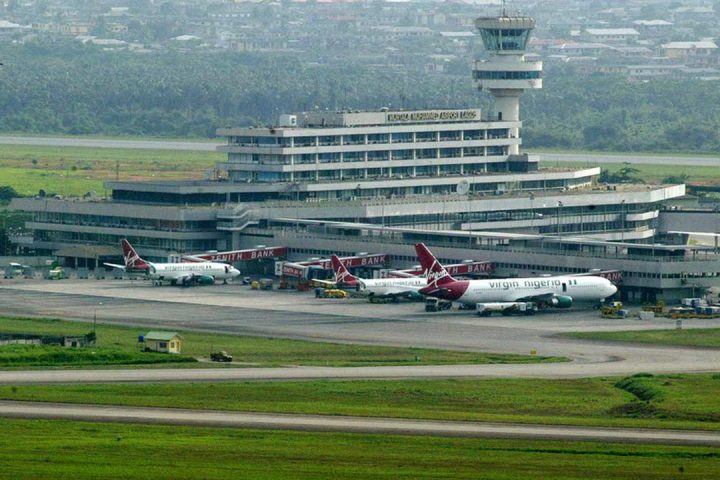The Nigerian Governors’ Forum (NGF) has accused the Central Bank of Nigeria (CBN) of carrying out a “currency confiscation” in its ongoing Naira Redesign programme and subjecting Nigerians to serious economic stress.
The governors equally lamented that the scarcity of the new currency notes (N1000, N 500 and N 200) has led to the emergence of the ‘Naira black market’ and other challenges like severe food inflation, long queues in banks, as people struggle to get the new notes.
Join our WhatsApp ChannelRising from a meeting on Saturday, 3rd February, the governors called for halting the CBN’s plan to end the use of the old naira notes.
In the communiqué signed by the NGF Chairman and Governor of Sokoto State, Rt. Hon. Aminu Waziri Tambuwal, the forum expressed sympathy to Nigerians “who are experiencing great difficulties under the current CBN Naira re-design and cash withdrawal restrictions policy.”
“We feel your pain and we are determined to employ all legitimate channels to ease the
the situation,” the forum stated.
The governors noted that there is a distinction between the Naira redesign policy backed by Section 20 (3) of the CBN Act, 2007, and the cashless policy being pursued by the apex bank as reflected in the current cash withdrawal limit. The forum accused CBN of adopting a draconian approach in implementing the policy which raises concerns about the respect for the civil liberties and rights of Nigerians as it relates to freedom of access to their legitimately earned money.
“It is our considered view that what the CBN is at present pursuing is a currency confiscation programme, not the currency exchange policy envisaged under S20 (3) of the CBN Act, 2007. Currency confiscation in the sense that the liquidity provided to the general public is grossly insufficient due to the restrictions placed on the amount that can be withdrawn regardless of the amount deposited.
“The current approach of the CBN raises concerns about the respect for the civil liberties and rights of Nigerians as it relates to their freedom to use legitimately earned income as they so wish.
“The Forum believes that to deploy a cashless policy and deepen digital transactions, the best practice around the world is to create a suite of incentives to attract customers; rather than a draconian approach as we have witnessed in the last three months,” part of the communiqué read.
Recall that the CBN had set January 31 as the deadline for phasing out the old higher naira denominations but following the biting scarcity of new notes to replace it, the apex bank extended the deadline to February 10 but the Supreme Court on Wednesday, 8th February, issued an interim order restraining the bank from implementing the deadline.
The court gave the order based on an action filed by three northern states being controlled by the All Progressives Congress (APC) – Kogi, Kaduna and Zamfara States.
The NGF also faulted the CBN’s argument that its reason for embarking on the Naira redesign was because of the astronomical increase in the currency
in circulation, noting that it was not supported by the bank’s data which says that the currency in circulation increased from N1.4 trillion in 2015 to N3.23 trillion in
October 2022.
The forum argued that the CBN failed to take into consideration “the increase in the
size of the country’s nominal GDP over this period, the doubling of consumer prices, rising
population and the impact of the humongous Ways & Means advances to the Federal
government by the Central Bank of Nigeria over this period.”
The NGF further stated that the CBN in pursuing the cashless policy underestimated the actual cash needs of the Nigerian economy considering the size of the informal sector.
“The inability to use the new notes has had far-reaching economic effects, leading to the emergence of the Naira black market, severe food inflation, variable
commodities prices based on the method of exchange, and long queues as well as crowds
around Automated Teller Machines (ATMs) and banking halls across the country with
individuals hoping to get a fraction of their money in new notes to meet their daily
livelihood. The country runs the risk of a CBN-induced recession,” NGF warned.
It called on the Federal Government and the CBN to “respect the Rule of Law
and listen to the voice of reason expressed by Nigerians and several other stakeholders
including the Council of State, before the damage to our economy becomes too great to fix
by the next administration.”
The governors also disclosed that they would “direct their Attorneys General to review the
suit at the Supreme Court with a view to consolidating the legal reliefs pursued by States.”
Victor Ezeja is a passionate journalist with seven years of experience writing on economy, politics and energy. He holds a Master's degree in Mass Communication.




















Follow Us